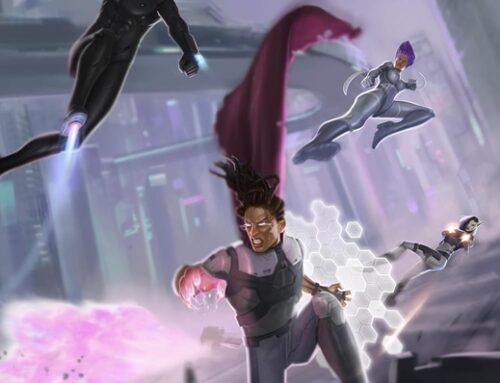
The divisive tragedy of war pulls a fearless fighter from the vineyard to the front lines in Her Own War by Debra Borchert, a gripping and lyrical work of historical fiction.
A French pastoral romance and a wartime thriller, this novel begins with slow world-building and character development, giving readers a probing look into Genevieve’s community and the indomitable strength of her spirit. As the Republicans of Napoleonic France concentrate their power and turn their eyes to wider conquest, Genevieve’s tight-knit wine-growing community in the Loire Valley grows frustrated with endless wars and the burden of unfair taxation.
When a recently liberated woman is recaptured and sold back into slavery by a villain from the past, a risky rescue plan is hatched – one that could send Genevieve and her lover to the guillotine. Desperate to protect her kin and the friends that have become family, she embarks on a daring and violent journey that takes her from incognito savior and murder accomplice to brutalized prisoner and undaunted rebel.
Brilliantly capturing the tense atmosphere and shifting political sands of France in the late 18th century, this novel paints the countryside and cityscapes with a tender and observant pen, while incisively exposing the philosophical rifts among the diverse characters. Balancing the personal and the political, the prose explores ideas of nationalism and loyalty in times of bitter conflict, delving into the nuances of resistance in its many forms, and expanding traditional ideas of heroism that are commonly associated with period-piece wartime novels.
Fighting fearlessly for her country, her community, and the future of her unborn baby, Genevieve is one of the more compelling leads in recent memory, with a ferocious temerity that makes her an ideal figure to carry this series. The sporadic erotic passages are tasteful and exhilarating, while the emotional vulnerability and exploration of intimacy and insecurity is powerful. The action sequences are well-drawn and fast-moving, with Genevieve’s internal monologuing smoothly incorporated into the flow of the story.
It isn’t essential to have read the previous books in the series, but there are frequent references in the prose to past events that affect current identities or relationships; jumping blind into this complex web of romance and loyalty can be dizzying. From an editorial perspective, there are some stretches of immersive prose that feel effortless and uninterrupted, but they can be broken by a slip in rhetorical quality or a jarring shift in pace or tone, with some redundant language and occasionally awkward dialogue. At times, the narration is too explicit as well, offering a scene’s significance on a silver platter for readers, without letting these moments unfold naturally through character interaction. The tendency to tell, rather than show, is inconsistent but noticeable, and can often undercut the gravity of plot development.
Aside from these minor storytelling stumbles, Borchert continues to craft an empowering series with this latest tangled and dramatic chapter, which makes for entertaining and even essential reading for fans of woman-led wartime drama.
Available At


















Leave A Comment